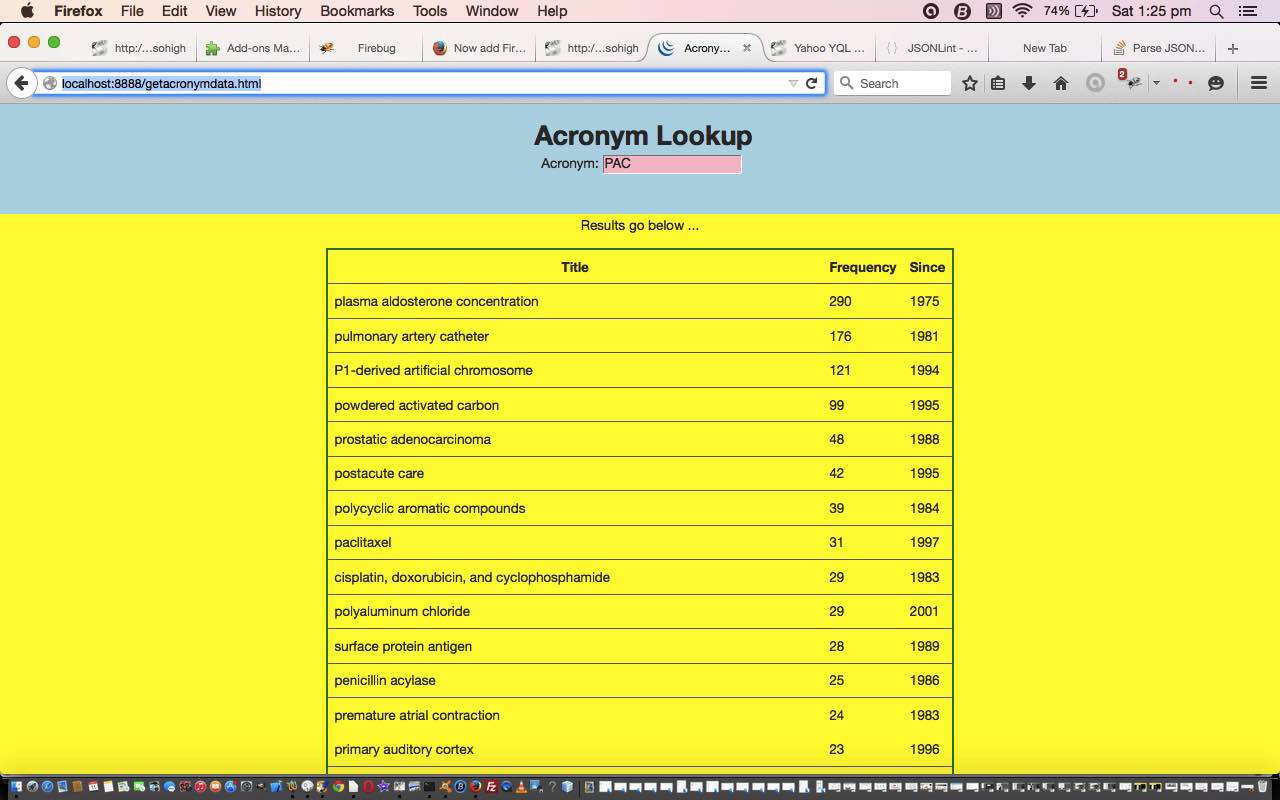It’s good every now and then to see what is new in the world of data feeds on the internet, so that is how, via this great link, we got onto the wonderful Acronym lookup resource at NaCTeM (The National Centre for Text Mining) … thanks …
Acromine: Okazaki, N., Ananiadou, S. (2006) Building an abbreviation dictionary using a term recognition approach. Bioinformatics, Volume 22, Number 24, pp. 3089-3095, Oxford University Press
So this tutorial uses the data emanating from NaCTeM’s feed of Acronym data. You fill in an Acronym of interest into an input text box and known results are sent back in JSON format.
The two big PHP functions of use for JSON parsing are (normally):
Another tool you should have in your armoury for jobs like this is the online JSON validator here. A generic JSON approach to issues could be:
- Type the URL you were given into a web browser address bar and have a look at it
- Type the URL you were given into http://jsonlint.com/ and have it validated
- Understand in your own mind what would be different about 1. to make it suitable
- Incorporate findings of 3. into massaging of data between file_get_contents and json_decode
Here is a link to some downloadable HTML programming source code which you may want to rename to getacronymdata.html which calls some downloadable PHP programming source code which you may want to rename to getacronymdata.php
Here are a few things you may find interesting about the code …
- the HTML calls the PHP via jQuery Ajax (and avoids cross-domain issues by using local PHP)
- the HTML will parse the JSON callback data if it is a totally capitalised entry (using JSON.parse()), else the PHP will do the JSON parsing
- we found the raw callback data needed the outer [] stripped to be JSON parsable
So maybe you will find something interesting with today’s live run, and hope to see you tomorrow with improvements.
If this was interesting you may be interested in this too.



